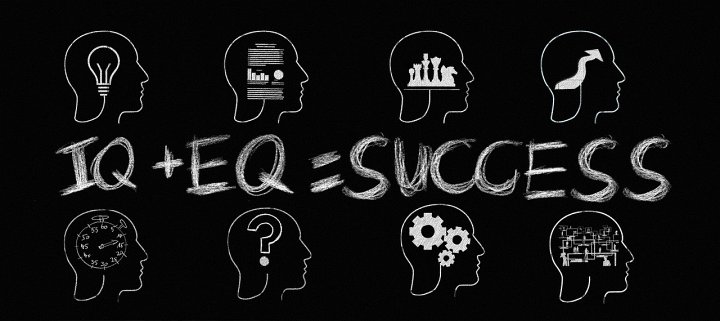9 Interpersonal Skills to add to your resume or CV
A resume serves, above all, to define whether or not we have alignment with the open position.
If we look at the job ad, we will know the most important and proper skills to show that we’d be the ideal person for the position.
The job ad usually describes the critical skills that interested professionals should have; candidates should always pay attention and include those who fit in the experiences section of their resumes, before applying.
Forbes recommends thinking of all skills that would be useful in any work (the ones you can pass to others as legacy), such as critical thinking, collaboration, creativity, and communication.
These are the primary skills you want to highlight in your resume; in this article, we will list and explain key interpersonal skills that you can add to your resume and tell you why each one of them can be helpful.
9 Interpersonal Skills to add to your resume or CV
1. Heed
Attention is the brain’s ability to select and focus only on the necessary focus to accomplish a particular task, excluding that which is not fundamental.
This skill is key to achieving goals and goals in any context, whether for dieting, physical exercise, studying, maintaining attention at work, among other numerous situations.
American psychologist Daniel Goleman Focus: The Hidden Driver of Excellence, 2014, writer proves that success in various areas and moments of life is learning to have focus.
One of the scholar’s theories is that there are three types of focus: all of them connect from some form, and lack of concern with something can affect you directly at another point in your life and so on.
When we are focused, that means we can easily be goal-oriented, and this is crucial if we want to develop a professional career since we will have individual and group tasks to accomplish.
2. Linguistics Skills
Companies value people who can express themselves, who can communicate ideas with clarity; it is essential to remember that good communication still includes the ability to express ourselves in any way and listen, understand what is said, and make ourselves understandable.
Communication skills are the ones that help us avoid and solve misunderstandings and mediate the dialogue process in the day-to-day life of a corporation.
Communicating well makes you connect with others and also stand out from others; we can start by the way we will introduce ourselves in our resume and possible job interview.
3. Leadership
Leadership is not only crucial for those who occupy management positions. A leader can engage by actively listening and motivating people to achieve the company’s goals is always welcome in any segment of enterprises of all sizes.
This is an interpersonal skill that needs to be added to our resume, and it can come as an experience; for example, we can talk about a position we used to take and which activities we used to do.
Check out our post on the 7 key interpersonal skills for Leadership, and learn more about what you can focus on developing to become a great leader.
4. Creativity
Creativity is the ability any human being has to create something new from scratch or an existing idea but with an actual outcome. Recruiters seek creators to have unconventional solutions, and “think outside the box” is very relevant so that companies of all segments remain relevant to their consumers.
5. Continuous learning
Everything changes all the time, so professionals keep up to date on their own, seeking courses, seminars, books that help develop new knowledge are jewels rare for employers.
When we improve our knowledge, it can be my getting a master’s degree, interacting with experts in areas we would like to know or never did.
This is valuable because we have more opportunities since we know that the professional world is competitive.
6. Teamwork
Complex situations require more waist game to collaborate and work as a team; even if everyone is physically in one place, cognitively and emotionally, everyone needs to be open to communicate, which means active listen and without getting thinks personally.
Teamwork means actively collaborating, sharing plans and ideas, and working together to build a whole better collaborating with the entire team.
The right attitude would be to have an open mind to listen and respect the opinions of others, although different from ours, and be in the feedback.
Recruiting companies value work together as it is an effective way to achieve a common objective more productively and inclusively.
7. Ability to work remotely
Some say the offices will never be the same after the pandemic, and it makes sense to consider that we adapt to current events, and many companies have understood that at least part of their team can work remotely.
If we have already developed this capability and have adapted well to the home office, we can consider that it already has some positive points in the curriculum.
8. Emotional Intelligence
Emotional balance is knowing how to deal with feelings and emotions in the professional environment, knowing even the propitious moment to exterminate them.
It is not always easy to contain emotions in the work environment; it is expected in some situations, feeling frustrated or even angry, but dealing adequately with emotions has to do with emotional intelligence, a highly desired skill in the corporate world.
Emotional intelligence is the ability to recognize and evaluate your feelings and those of others and deal with them rationally and having it.
9. Empathy
It is essential to build and maintain relationships with other people and having the sensitivity to deal with our colleagues, understand other’s emotions, and show humanity. We can easily be recognized as leaders.
This is a crucial skill, mainly for those who wish directly with the customer service and professionals in the area of service provision and are or wish to be in the leader position.
Knowing how to put ourselves in people’s shoes is essential; even though we are talking about a professional environment where people are usually focused on getting the job done, we understand that whoever works or participates in that journey with us, as a human being, composed of emotions. Such feelings directly influence the motivation and productivity of our collaborators.
Conclusion
We don’t need to include all of our experience and skills in our resumes. If we know exactly what the market is seeking, this will be our best strategy because we will then enlighten our experience with the best interpersonal skills to our resume.
Reference and Further Reading
10 Best Skills To Include on a Resume (With Examples)
AceThePresentation. 7 Indicators of Good and Bad Social Skills.
AceThePresentation. Communication Skills Guide: Examples of 11 Good and 8 Poor Ones.








